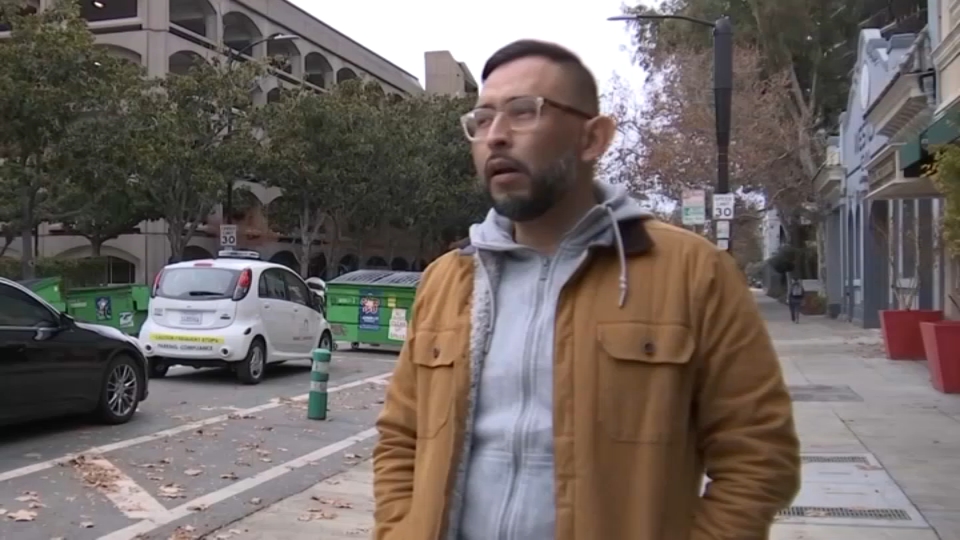Dozens of business and labor leaders, elected officials and community activists who support the BART Silicon Valley Extension project gathered in solidarity Tuesday at San Jose's Diridon Station to plead with the federal government to help fund the project.
"We must include the federal funding in order to move this project forward," said Santa Clara County Supervisor Cindy Chavez.
The BART Silicon Valley Phase II project plans to build a 6-mile BART line from Berryessa Transit Center through downtown San Jose. It will eventually end with a station in the city of Santa Clara. The project would complete a ring of transit rail around the Bay.
The project broke ground in June but it needs additional funding from the federal government to continue the multi-year construction process.
San Jose taxpayers have contributed over $4.5 billion toward the project and the state of California has paid $1.9 billion, Chavez said. Now it is hoping to secure $6 billion from the federal government to cover the rest.
"Our voters tax themselves because they so badly want BART here. Now we need the Biden administration and the (Federal Transit Administration 's) help. We need them to step up," Chavez said.
San Jose Mayor Matt Mahan spoke at the news conference to explain the benefits the project would bring to Silicon Valley and the Bay Area as a whole.
Local
"It's not every day that you see our businesses and labor leaders standing side by side in total agreement. But today we are here to say that ringing the Bay in rail is our best chance to create a better, more connected future for everyone. And the moment to make that investment is now," Mahan said.
The project is estimated to bring 75,000 new jobs to the area, said Omar Torres, a San Jose city councilmember.
Get a weekly recap of the latest San Francisco Bay Area housing news. Sign up for NBC Bay Area’s Housing Deconstructed newsletter.
Ahmad Thomas, CEO of the Silicon Valley Leadership Group business association, said the project will be a catalyst to expand economic innovation in Silicon Valley, the tech and startup hotspot of the country.
"When we look at our innovation ecosystem, this pivotal project provides equitable connectivity to make this region all it can be. To bring more startup founders, drive more housing and to truly catalyze a more equitable and inclusive innovation economy for all," Thomas said.
Gary Dillabough, founder of real estate firm Urban Community, also praised the extension's potential to attract more labor growth in the tech sector of Silicon Valley beyond the 75,000 jobs the project is creating in and of itself.
"Connecting Diridon Station to the rest of the Bay Area is going to help these companies tap into a larger and broader workforce, which will enable them to grow more quickly and effectively," Dillabough said.
The news conference comes as the project is waiting to hear from the federal government regarding how much money they are willing to pay. This year, the estimated cost rose from $12.2 billion to $12.75 billion, according to the Santa Clara Valley Transportation Authority.
"Bringing BART through Silicon Valley is not just about the cost today. It's about the opportunity we are creating tomorrow," Mahan said. "We can sacrifice for the benefit and for the opportunity of future generations for our kids, grandkids and our great grandkids after that."
Tammy Dhanota, a San Jose resident and Service Employees International Union Local 521 labor union member, has been waiting to see the project come to fruition for decades.
"As a mom and a lifelong resident of San Jose, I know this project is more than just a story about numbers. It's about investing in our future so my kids your kids have access to good jobs, an effective transit system and a healthy environment," Dhanota said.
Torres said he has been waiting for this extension since he was a kid. Now as an adult, he is hoping the federal government will help fund the project's remaining costs and understand its benefits for Silicon Valley and the Bay Area.
"This extension will enhance connectivity, drive significant economic growth, and provide a sustainable transit option for our residents and our workers," Torres said. "But we can't do it alone. We need the federal government's support."



